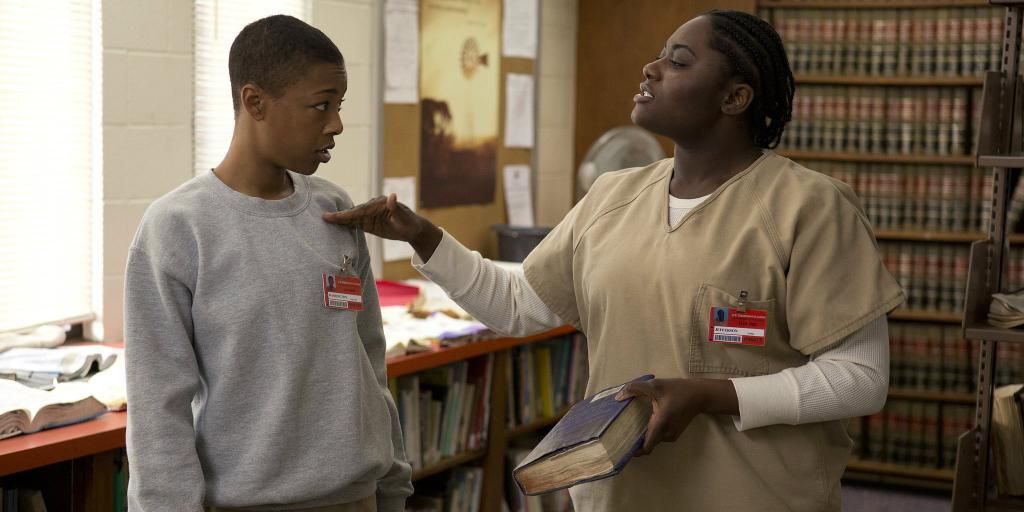Long Live Tousstee: Taystee & Poussey Challenge the Portrayal of Black Woman Friendships

I love Orange is the New Black. The writing, dialogue, and character development are superb. It is one of the first shows to honestly depict the complex and intersecting realities of women, significantly women within the prison industrial complex. Many critics celebrate its significance in employing actresses from diverse backgrounds. As a matter of fact, I do not know if there is another scripted television show today that represents such a wide range of women.
Yes, I recognize the show has many flaws. Yes, I recognize the main reason it is able to have such a talented, multicultural cast is due to its setting within a women’s correctional facility. But despite this, the actresses shine in their roles and the characters they play are fully human. And I am always here for that.
The aspect of the show I love most, however, is its portrayal and treatment of relationships between women. Jenji Kohan, her writers, and the show’s producers are not afraid to show us the intricate, varying ways women relate to and interact with one another. We have Aleida and Dayanara’s mother-daughter relationship from hell. (That slap in the first episode? Damn!) We have Sophia’s touching, heartbreaking relationship with her wife. (Laverne Cox for all the Emmys and Golden Globes and Nobel Prizes forever.) We have the sometimes shocking sex scenes between women, which I also believe celebrate women’s sexuality and our right to feel pleasure within our bodies.
And then… we have Tasha “Taystee” Jefferson (Danielle Brooks) and Poussey Washington (Samira Wiley).
Their friendship is by far my most favorite thing about this show. (And if you can’t tell, I have a lot of favorite things about this show.) Not only do I believe their friendship is one that everyone should aspire to, but I also believe their friendship is critical considering how current media represents Black Women’s interactions with one another. Growing up, I did not see the kind of all-out brawls between my mother and her friends like those we see on Basketball Wives, Love and Hip Hop, and The Real Housewives of Atlanta. My mother and my aunties (because they’re always your aunties or “play moms”, even if you’re not actually related) were better companions to one another than their own husbands.
When I watch them, I feel like I am truly watching how myself and my sistafriends spend our time together. From their white-girl-banter as Amanda and Mackenzie to the way they consider one’s triumph a collective victory, I have been where they are. The friendships I have with my fellow women and sistafriends are the most important relationships in my life, outside of my family. Even though we saw the strength of their relationship tested with Vee’s manipulative interference this season, their adoration for each other is what saved Taystee. It was painful to watch them drift apart and see Poussey suffer, but this also happens in female friendships. Still, we never saw them disrespect or disparage each other the way we do on other TV shows. And when Taystee finally pulled her head out of her ass, it was beautiful to watch them come back together… without needing to explicitly rehash all of the previous drama. Because when it comes to you and your homegirls, some things never have to be said to be understood.
Indeed, I am grateful for Taystee and Poussey. I am grateful for the subtle ways in which this depiction of close relationships between Black Women is challenging the dominant narrative that says we are unable to encourage, affirm, comfort, and truly love one another. (Because we can and we do.) And I am grateful for the sistafriends who hold me down, lift me up, and are always by my side.
Long live Tousstee!
Michelle Denise Jackson is a writer, performer, storyteller, and teaching artist living in Southern California. She is a graduate of NYU's Gallatin School of Individualized Study. She has performed in New Jersey, New York, Michigan, Washington D.C., and Southern California. For more of her wit and work, visit her website (michelledenisejackson.com) or follow her on Twitter (@MichelleJigga).

No comments: